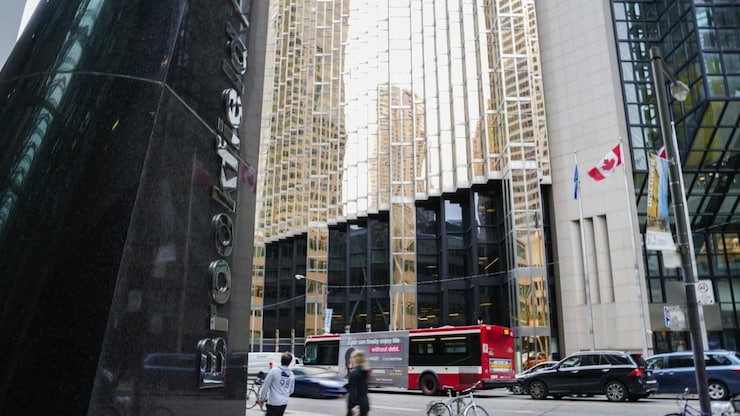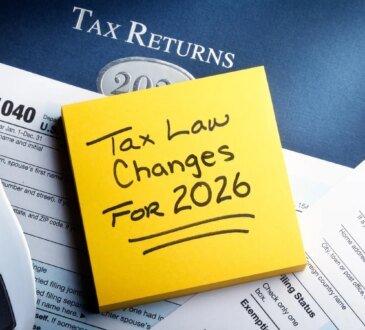Let’s talk about money. Like it has in many past elections, money and the economy have become a focal point. And party leaders are facing scrutiny when it comes to their own portfolios business dealings past or present.
Many readers have asked CBC for more clarity on the different financial terms leaders have argued over — from investments, to assets, tax cuts, tax havens and blind trusts.
Liberal Leader Mark Carney has gotten a lot of questions about his assets and investments. Think stocks, mutual funds, real estate and businesses, basically whatever he either owns or has put money into with the intention of making more money.
Ahead of calling the election, Carney announced he had placed all of his assets (new window) other than cash and real estate into a blind trust.
Carney has also faced questions about reports that two investment funds he co-chaired while at Brookfield Asset Management were registered in Bermuda (new window), a tax haven that benefits investors by avoiding some Canadian taxes, according to information obtained by Radio-Canada.
- What issue matters the most to you this federal election, and why? Share your personal stories at ask@cbc.ca (new window).
Investments, assets, blind trusts, tax-free savings accounts and potential conflicts of interest are weaving themselves into this campaign in sometimes confusing ways. So let’s break it down.
Investment and assets
Conservatives, including the party’s leader Pierre Poilievre and ethics critic Michael Barrett have criticized Carney’s role in those Brookfield investment funds and called on him to publicly disclose all of his holdings before they were put into the blind trust.
Under the current government ethics rules meant to guard against conflicts of interest, Carney had 60 days to disclose his assets to the ethics commissioner upon being sworn in and another 60 days before that information goes public.
Poilievre said both these issues are proof Carney wants Canadians to blindly trust him
and that he was dodging the same high taxes Liberals make Canadians pay.
So what about Poilievre? The Conservative leader said Thursday he recently brought [his] investments home after Trump began threatening the country,
and that he now only invests in Canadian stocks and companies.
Poilievre has publicly disclosed his holdings before and after that move. Before, they were spread across the U.S., Europe and Asia and also included bitcoin. Now, they’re focused around an index fund whose top asset happens to be Carney’s old employer, Brookfield.
The fund that oversees these Canadian investments, Vanguard FTSE Canada Index ETF, is listed on the Toronto Stock Exchange. But it is managed by Vanguard Group, an asset-management company based in the U.S.
WATCH | Carney grilled over previous role overseeing funds worth $25B in tax haven
Début du widget Widget. Passer le widget ?
Fin du widget Widget. Retourner au début du widget ?
TFSAs
The nature of that ETF may seem a small detail, but it could present a quagmire next to Poilievre’s recent policy proposal (new window) to raise the amount Canadians can contribute to tax-free savings accounts (TFSAs) — with a caveat that the cash must be invested in Canadian companies.
First, let’s look at what TFSAs are. A TFSA is an investment account managed through a brokerage, bank or financial advisor that is not taxed, even when withdrawn. There’s a limit to how much Canadians can contribute each year, which is set by the government.
The Stephen Harper government introduced TFSAs in 2009, eventually raising the annual contribution limit to $10,000. But the Justin Trudeau government brought it down to $5,000, then tied it to inflation. The contribution limit for this year is $7,000.
The money invested in a TFSA can grow tax-free, and can be invested in stocks, bonds, mutual funds and exchange-traded funds. Unlike a registered retirement savings plan (RRSP) account, you don’t owe the government anything when you withdraw the money.
It’s currently unclear how Poilievre’s proposed top-up will work. If elected, a Conservative government would have to define which companies the user invests their money into as Canadian, given how many hold assets abroad.
Blind trusts and conflicts of interest
Let’s dive back into blind trusts, and how they’re supposed to shield elected officials from conflicts of interest.
Carney has a 60-day window to disclose his finances to the ethics commissioner. That clock started ticking once he was sworn in as prime minister on March 14.
Within 120 days of taking office, a cabinet minister or parliamentary secretary has to divest controlled assets by selling them or putting them into a blind trust. At that time, their financial assets become publicly viewable.
According to the Conflict of Interest Act, the official must appoint a trustee to look after their blind trust. That person must be approved by the ethics commissioner.
That trustee cannot be a friend, family member or business partner, for example. They take full control of those assets and can provide general income reports for tax reasons, but not updates on specific investments.
Poilievre doesn’t have to put his assets in a blind trust because he is not a member of cabinet.

Brookfield Place, in the financial district in Toronto, is seen in 2023. Carney’s time with Brookfield Asset Management is being scrutinized on the election campaign trail.
Photo: The Canadian Press / Andrew Lahodynskyj
Political rivals — and CBC readers — have questioned whether Carney could be in a position to make decisions that would benefit his holdings, even if they’re in a blind trust.
According to Brookfield’s latest financial filings, the Liberal leader held stock options worth $6.8 million at the end of December. Stock options allow the holder to buy and sell shares in a company at an agreed-upon price.
Ian Stedman, a lawyer and associate professor who specializes in government ethics at York University’s School of Public Policy and Administration, says a blind trust isn’t a perfect conflict of interest avoider
but it’s one of the best tools available.
Carney has said he’s also set up screens,
which include disclosing potential conflicts of interest to an administrator and agreeing to abstain from any discussions, decisions, debate or votes on the subject.
The Liberal leader has defended his time in private and central banking, saying it has made him an astute negotiator and policy planner.
ABOUT THE AUTHOR
Verity Stevenson (new window) · CBC News
Verity is a reporter for CBC in Montreal. She previously worked for the Globe and Mail, Toronto Star, Telegraph-Journal and the Sherbrooke Record. She is originally from the Eastern Townships.
With files from Mark Gollom and The Canadian Press




